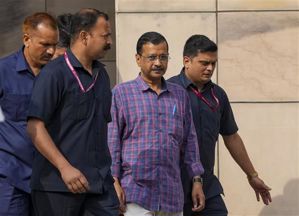
S Nihal Singh
Turkey’s singular journey since the dominance of the Justice and Development Party (PKK) more than a decade ago has been chronicled by one man, Recep Tayyip Erdogan, a long-term prime minister now the first directly elected president in the post-military dominated politics. And as he dominates the narrative of his country, he seems in a hurry to stamp a religiously inclined dispensation on what Kemal Ataturk, the founder of modern Turkey, did to jerk his reduced nation after the fall of the Ottoman Empire into modernity.
The concern of liberals in the country and the outside world is that while Mr Erdogan is amassing more power, he is taking Turkey towards an unhealthy direction. A dramatic instance that has caught the world’s eye is the recent onslaught on the Gulen media empire by raiding Zaman, the country’s largest selling newspaper, and an affiliated television station and arresting the newspaper’s editor-in-chief and the TV station’s chief executive among others. The government had earlier arrested a host of journalists and former army officers on grounds of unearthing a conspiracy, which led to a long trial and its inevitable denouement.
The saga of the epic battle Mr Erdogan is seeking to fight began with the parting of ways between his party and the cleric Fetullah Gulen, who lives in self-exile in the United States. The two were together in the task of dismantling Ataturk’s structure in favour of a more religiously inclined state. The success of the PKK was partly due to Gulen, who had, in the process, built his own base through a media empire and by infiltrating his supporters at various levels in the bureaucracy, police forces and the judiciary.
President Erdogan woke up to the danger of a powerful parallel force more than a year ago. Almost precisely a year ago, senior members of Mr Erdogan’s cabinet were taken into custody for questioning on serious corruption charges. The ministers were subsequently forced to resign. But Mr Erdogan cried foul and subsequently launched an onslaught on Gulenists calling it a conspiracy. He transferred thousands of police and judicial personnel virtually to put a stop to the investigations.
The PKK, under Mr Erdogan, has come to power largely on the strength of the moderately religious-inclined constituency in Anatolia, the heartland. These are people, mainly in trade and industry, who have prospered in the remarkable economic development Turkey has seen and desire to express their piety publicly. Mr Erdogan’s wife wears the head scarf and he was very much in tune with the sensibilities of Anatolia and desired to make the country more hospitable to observant Muslims.
President Erdogan remains the big boy in Turkish politics although he has still to change the constitution, which accords more powers to the prime minister in keeping with its parliamentary system. But in the interim, no one doubts who the boss is. What is causing much anxiety among western capitals, Washington in particular, is that the newly installed President is assuming the characteristics of a dictator under the guise of giving his country a religious orientation.
Turkey is a member of NATO, the North Atlantic Treaty Organisation, and is a vital player in its conflict-ridden region. It sought tom play a larger role by declaring that its objective in foreign policy was to have "zero problems" with neighbours. How tantalising these words sound today because President Erdogan is embroiled in the dirty mess of what is happening in Iraq and Syria, in particular. He undertook a hawkish line in trying to unseat President Bashar al-Assad in Syria.
President Erdogan remains steadfast to his cause even as Washington’s enthusiasm for the removal of Mr Assad has receded in the face of the rise of the Islamic state, which supplanted the ISIS movement. Turkey is still demanding the carving out of Syrian territory for Syrian refugees and giving such a zone air protection before fully cooperating with the US on the larger goal of destroying IS.
For the present, the Obama administration is adopting a wait and see position for the simple reason that Turkey is simply too important as an ally in the troubled region. But an increasing sense of anxiety and frustration characterises Washington’s dealings with Ankara, which is also hosting some 1.5 million Syrian refugees. And the new measures taken by the authorities against Zulen-supported media touches a sensitive chord among American policymakers.
Some aspects of the Turkish experiment in democracy have been disturbing from the beginning. There is no clear dividing line between the police and the judiciary or indeed between the executive and the other two wings of administration. But Mr Erdogan’s assertive policy in acquiring greater powers for the presidency has greatly accentuated this aberration.
There are other signs of the authoritarian streak in President Erdogan’s conduct. He has given public airing to the view that it was Muslims, rather than Columbus, who discovered America. And he has not been shy in proclaiming his belief that, unlike the western penchant for gender equality, men and women are not born equal nor did nature intend them to be so, a declaration that warmed the hearts of his core constituency.
The irony is that following the Ataturk revolution, Turkey was in the forefront of Muslim countries seeking to turn away from the shibboleths of the past. Indeed, the head scarf was banned from official settings; it has now been brought back. It is true that the President himself is an observant Muslim and is inclined towards religiosity to a greater extent than many of his fellow citizens.
The new Turkish presidency is very much a work in progress. How far Mr Erdogan will be able to take his country away from the secular moorings so dramatically established by Ataturk remains to be seen. But many of his fellow citizens — both men and women — will look to the future with foreboding, nurtured as they have been in a liberated social environment.


























